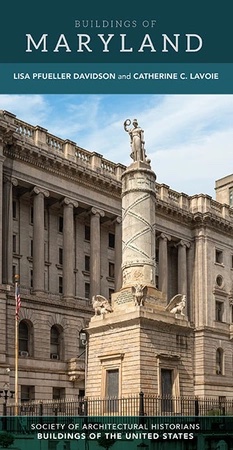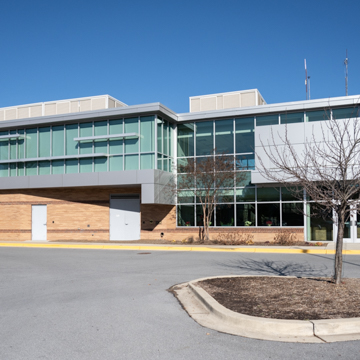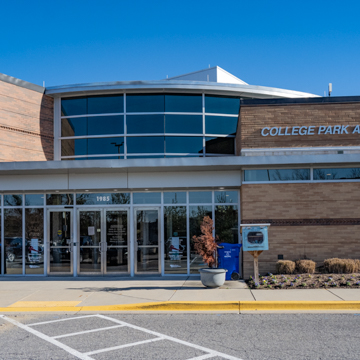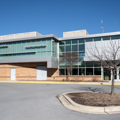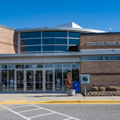Established in 1909 as the Signal Corps flight school with instruction by Wilbur Wright, this modest airfield has been in continuous operation ever since. Its military aviation career was short-lived, but the airport became integral to early civilian aviation, including such milestones as early commercial airmail service (1918) and controlled helicopter testing (1920–1924). The Bureau of Standards tested radio-controlled navigation here (1927–1935), another example of the presence of federal science and technology programs in the Maryland suburbs. The oldest surviving structure at the airport is the 1919 airmail hangar, and the newest is the Operations Building, opened in 2014. Also noteworthy is a c. 1918 concrete compass rose used by early aviators to calibrate their compasses to true north before taking off. The museum on-site is a Smithsonian affiliate with small aircraft on display and expansive window walls facing the runway.
You are here
COLLEGE PARK AIRPORT AND AVIATION MUSEUM
1909 airport founded; 1998 museum, HOK Architects; 2014 operations building. 1909 Corporal Frank Scott Dr.
If SAH Archipedia has been useful to you, please consider supporting it.
SAH Archipedia tells the story of the United States through its buildings, landscapes, and cities. This freely available resource empowers the public with authoritative knowledge that deepens their understanding and appreciation of the built environment. But the Society of Architectural Historians, which created SAH Archipedia with University of Virginia Press, needs your support to maintain the high-caliber research, writing, photography, cartography, editing, design, and programming that make SAH Archipedia a trusted online resource available to all who value the history of place, heritage tourism, and learning.

